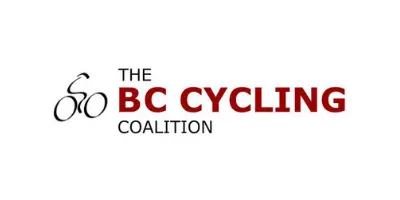
I was ticketed for a cycling offence. Are my car insurance premiums going to be affected?
For any cyclist, getting a traffic ticket is a surefire way to ruin the day. If it happens to you, learn your rights and options to deal with the ticket.
What you should know
“Last week I got my first ticket as a cyclist. I was riding my regular route, which takes me down a steep hill before flattening out through a school zone. When it’s not busy, I usually ride through this stretch at a good clip. On this day, a police officer caught me on their radar gun going 10 km/h above the speed limit. They flagged me down and issued me a ticket. I didn't realize I was going over the speed limit." 😲
– Daley, Vernon, BC

The main traffic law in BC is called the Motor Vehicle Act. This law sets out rules of the road that drivers must follow (as we explain here).
Under this law, a cyclist has the same rights and duties as the driver of a motor vehicle. Generally, that means they can be ticketed for the same violations as drivers. For example, cyclists can receive a ticket for exceeding the speed limit or failing to signal. Cyclists usually face the same fines as motorists as well.
This law also sets out traffic violations that are specific to cyclists. These include:
riding without a helmet
riding on a sidewalk or crosswalk where it’s not permitted
riding in the dark without proper lights
We dive into cycling-specific laws in our guidance on ten rules of the road for cyclists.
In addition to provincial laws, most municipalities have local bylaws that apply to cyclists as well. Many bylaws overlap with provincial laws, but some create new rules that apply to cyclists.
Provincial violation tickets are traffic tickets issued under BC’s Motor Vehicle Act and its regulations. If you get a provincial violation ticket for a cycling offence, read it carefully. It will look like this. The front of the ticket should:
indicate that you’re receiving the ticket as a cyclist
have your name and contact information
have the date, time and location of the offence
say which rule — like cycling without a helmet or failing to stop at a stop sign — the officer believes you broke
show the ticket amount (total of the fine plus a 15% victim-surcharge levy)
list a street address where you can personally drop off a dispute notice
be signed by the officer (your signature is not required)
On the back of the ticket you’ll find information on how to either pay or dispute the ticket. Carefully check the time limits for disputing your ticket. Most tickets must be disputed within 30 days, though some have shorter time limits.
Large versus small errors
If one or more of the items listed above are missing, and you dispute the ticket, it’s possible the ticket could be tossed out. But the ticket wouldn’t be set aside for small errors, like a misspelled name, incorrect address, or reference to the wrong section number of BC’s traffic law.
Under BC law, municipalities in the province have broad authority to create and enforce local bylaws. Many municipalities have bylaws that regulate cyclists. If you violate a local bylaw, you can receive a bylaw infraction ticket.
If you receive a bylaw infraction ticket, read it carefully. It will look like this. The ticket should:
have your name and contact information
have the date, time, and location of the offence
say which bylaw the officer believes you broke
show the fine amount (the maximum penalty for a bylaw infraction is $1,000)
list a street address where you can personally drop off a dispute notice
be signed by the officer (your signature is not required)
On the back of the ticket, there’s information on how to either pay or dispute the ticket. Carefully check the time limits for disputing your ticket. Most bylaw infraction tickets must be disputed within 14 days.
Breaking BC’s driving laws can earn you driver penalty points. These go on your driving record when you get a ticket for certain offences. Racking up penalty points can raise your insurance premiums— or even get your licence revoked.
A cycling offence won’t affect your driving record. At least, it’s not supposed to. But if the officer failed to clearly indicate on the ticket that it’s a cycling violation, the government may assume it’s a motor vehicle violation — and you could receive penalty points you don’t deserve.
If you’re ticketed for a cycling offence, read the ticket right away. Make sure it clearly indicates that it’s a cycling violation, not a motor vehicle violation.
You don’t need to provide your driver’s licence
To avoid the risk of getting penalty points for a cycling offence, don’t offer up your driver’s licence when you’re pulled over. It’s not required by law, and stating your name and address orally is usually sufficient.
When you get a provincial violation or bylaw infraction ticket, you may feel like you have to pay it. But in fact you have options. You can decide to:
pay the ticket amount,
dispute the ticket, or
do nothing.
Most provincial violation tickets must be disputed within 30 days. The time limit for disputing a bylaw infraction ticket is usually 14 days. Check the ticket carefully, as there may be a shorter time limit.
If you do nothing
If you don’t pay or dispute the ticket within the time limit, you’ll be treated as if you’ve pled guilty. This means you owe the ticketed amount, and the government could hire a collection agency to get the money from you.
If you agree with the ticket, it’s the same as pleading guilty. That is, you agree you broke the law and will pay the fine. You won’t need to go to court.
For provincial violation tickets, you usually have to pay the ticket within 30 days of the violation date. For bylaw infraction tickets, you have 14 days to pay. Often, the fine for a ticket is reduced if you pay before the deadline. Check the ticket to see if there’s a reduced fine for early payment.
Read the back of the ticket for your options for paying the ticket, and instructions on how to do so.
Work out the problem
When you receive a ticket for a cycling offence, you need to decide what to do. Start by carefully reading the ticket (front and back). This will help you make a decision.
Make sure the ticket indicates that it relates to a cycling offence. Otherwise, the government may assume that it relates to a motor vehicle offence. In that case, you could end up with driver penalty points or a mark on your driving record.
On the back of the ticket, there’s information about the steps you need to take if you want to pay or dispute it. Check the time limits set out for disputing your ticket.
After you’ve read the ticket, make some notes about the situation and take photos as soon as you can.
For example, if you get a ticket for careless cycling, jot down details of what happened, including:
The date and time of the incident.
The location of the incident. For example, if the incident took place at an intersection, write down the cross streets.
The cycling conditions. Was there heavy traffic? What was the weather like? Was it light or dark out?
What the officer said to you about the cycling offence. For example, did they say they saw you riding on the sidewalk?
What you said to the officer. It’s generally best to be polite and not say anything to the officer at all. But if you did, write down what you said.
You can also take a photo or video of the location where the incident occured. This can help to show what the conditions were like when you were pulled over.
Stay organized. Keep your ticket, your notes, and all your evidence in one place, like in a file folder or on your phone or computer.
Once you’ve read the ticket and made some notes, you need to make a decision. You can:
pay the ticket amount,
dispute the ticket, or
do nothing.
You may decide to dispute your ticket if you believe it’s unfair and you disagree with the charge. You can also dispute the ticket if you agree with the charge but want to pay less or want more time to pay.
Pay close attention to the timing
If you’re disputing a provincial violation ticket, you must file your dispute within 30 days of the date of the ticket. (Check the ticket carefully for time limits.) If 30 days have passed, you’ll have to file a form to ask the court to give you an extension.
If you’re disputing a bylaw infraction ticket, you must file your dispute within 14 days. If you aren’t able to file a dispute within the time limit through no fault of your own, you can apply for an extension by filing this form.
How to file your dispute
For the steps to take to dispute a provincial violation ticket, see our guidance on if you get a traffic ticket.
More on how to dispute a ticket
The back of the ticket has more information on how to file a dispute. As well, the Provincial Court of BC's website explains how to dispute a ticket.
To dispute a bylaw infraction ticket, you must deliver a written notice of dispute to the municipality. Instructions on how to do so are printed on the ticket. Generally, you have two options:
Mail the ticket to the address specified on the back of the ticket. A notice of dispute delivered by mail is said to have been delivered on the date that it’s sent.
Go in person to the address specified on the back of the ticket to let them know you’re disputing the ticket. Bring the ticket with you. You may need to fill out a notice of dispute form when you arrive.
Your notice of dispute must include:
the ticket number (it’s on the top right corner on the front of the ticket),
your full name and mailing address,
the date of the offence, and
the bylaw name and section of the offence.
If you dispute the ticket, the court will mail you a notice of hearing with the date and location. It may be many months before you receive this notice.
Hearings for both provincial violation and bylaw infraction tickets take place in BC Provincial Court. The court procedure, and the steps to prepare for court, are similar for both types of offences.
Here are some things you can do to strengthen your position:
Review your notes and any photos or videos you took after you got the ticket.
Send a written request to the officer (named on the ticket) for a copy of all the information they have about the offence, including their notes and any photos or videos.
Think about your legal defence(s). Take a moment to look up the law or bylaw. This can help you to understand the parts of the offence and figure out what defence to put forward in your case.
Prepare questions you want to ask the officer and any witnesses.
Make three copies of any photos or other documents you want the court to consider.
Keep all your documents, evidence, and any printouts of the law together in one place, like a file folder or tabbed binder.
On the court date, you have to appear in court (or have someone attend on your behalf) at the time and location set out in the hearing notice.
Your hearing will be heard by a judicial justice. At the hearing, the officer and any other witnesses will tell the court what they saw. You can ask the officer and their witnesses questions. You’ll also have a chance to say what happened.
After both sides have presented their case, the justice will decide whether you’re guilty or not. If you’re found guilty, the justice will give you a penalty, usually a fine.
Hearings for a bylaw infraction are more flexible
In a bylaw infraction hearing, you have a bit more leeway than in many court matters in what you can introduce as evidence. For example, you can generally present any oral or written testimony that’s relevant to your case.
Who can help
Many municipalities in BC hire bicycle coordinators who work for the city and deal with concerns regarding road conditions, construction, and other cycling hazards. You can reach out to your local municipality to find out if they employ a bicycle coordinator.
Some municipalities also have bicycle advisory committees, which are made up of city staff members and members of the cycling public. They provide advice to the municipality on cycling-related issues.

Ministry of Transportation
Government ministry that provides information on cycling rights and rules in BC.

Violation Ticket Centre
BC government office explains how to pay or dispute a provincial traffic ticket.

BC Cycling Coalition
A non-profit society that aims to provide a voice for cycling in BC.

Access Pro Bono's Legal Advice Clinics
Volunteer lawyers provide 30 minutes of free legal advice to people with low or modest income.

Access Pro Bono’s Everyone Legal Clinic
Clinicians provide affordable fixed-fee services on a range of everyday legal problems.

